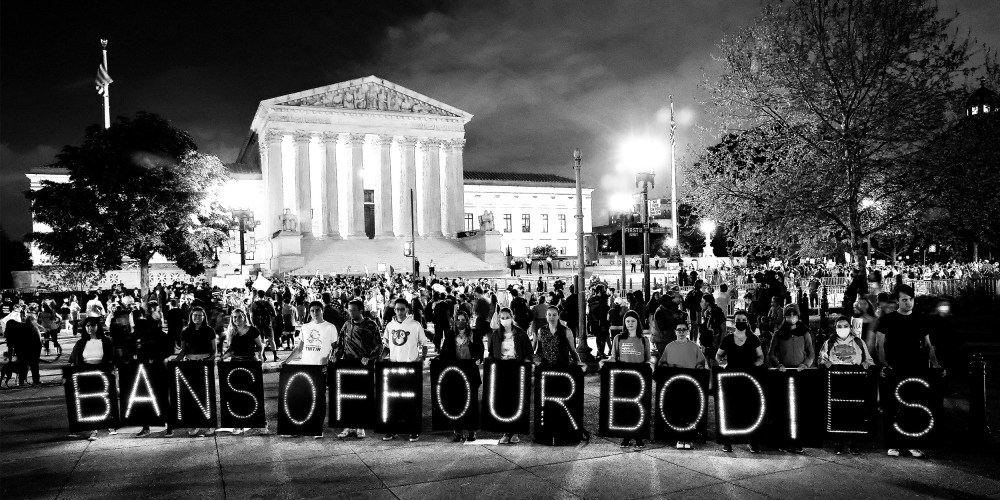The nine justices of the U.S. Supreme Court like to portray themselves as wise men and women on the mount, dispassionately dispensing wisdom. But the Supreme Court is nothing special. To know the politics is to know the institution and what it will do.
Hopefully Monday night’s leak of a draft of an upcoming court decision that would throw out the landmark 1973 Roe v. Wade abortion-rights ruling strips Americans of their rose-colored glasses and shows the court as a predictable third political branch of the U.S. government just like the White House and Congress.
The Supreme Court is nothing special. To know the politics is to know the institution and what it will do.
In the draft opinion for Dobbs v. Jackson Women’s Health Organization, a case challenging Mississippi’s ban on abortions after 15 weeks of pregnancy, Justice Samuel Alito wrote that there is no constitutional right to abortion.
“We hold that Roe and Casey must be overruled,” he wrote, referring to 1992’s Planned Parenthood v. Casey, which affirmed Roe’s finding of a constitutional right to abortion services but allowed states to pass some restrictions. “It is time to heed the Constitution and return the issue of abortion to the people’s elected representatives.”
For some reason, the nation gasped when Politico published the leaked draft, but, come on: Who didn’t know that this case would end this way?
Do Americans think the Supreme Court justices were behind closed doors actually trying to decide this case? Did they have an image of justices poring over thick law books, batting ideas back and forth, perhaps debating one another before making a decision?
Please. The court made its decision long ago.

Justices vote on cases almost immediately after oral arguments. The same week they hear arguments, they close themselves in a room and, one after the other, explain how they would vote. No one else is allowed in that room, so only the nine know the details of that first immediate vote. But that vote is usually the binding decision. Justices don’t take time to deeply research anything the lawyers argued to them in court. It’s almost as if the arguments don’t matter.
This means that, in all likelihood, the Supreme Court decided Dobbs the week of Dec. 1, and the justices have known the result since last year.
You’re going to hear a lot of people say of Monday night’s leak, “It’s only a draft! Things could change! Anything could happen!” Sigh. Yes, there is a wild possibility that a justice could change his or her mind. Several insider books on the Supreme Court make this possibility clear. Those same books also make clear how rare that is.
The wording of the opinion may change, but the conclusion that Roe v. Wade is no longer binding will not.
That means while the wording of the opinion may change, and likely will change if only because it’s been made public, the conclusion that Roe v. Wade is no longer binding will not.
So if the decision was made months ago, what has the Supreme Court been doing since December? Justifying their votes for the public and for history.
A justice on the winning side, usually chosen by seniority, goes to their clerks and drafts an opinion explaining why their side won. That draft — which is what Politico has, the court has confirmed — is sent to the other justices. Those who disagree write a dissent. Those who like the decision sign on, and those who like the decision but would have phrased it differently or want changes to win their vote on the opinion begin negotiating with the author and their supporters for modifications. Or they write their own concurring opinion.
That’s where the court is now.

Regarding the point about seniority, if Alito is crafting the majority opinion, then that likely means conservatives senior to him — Chief Justice John Roberts and Justice Clarence Thomas — aren’t completely with him. Roberts likely wants a less draconian decision, and Thomas likely wants a more draconian decision. Look for Thomas to vote with the winning conservative side but write an opinion that will be even harsher than Alito’s. I think Thomas will argue that this decision means other Supreme Court decisions that found rights not specifically written in the Constitution are also invalid and that if it isn’t spelled out in the Constitution, it isn’t a right.












